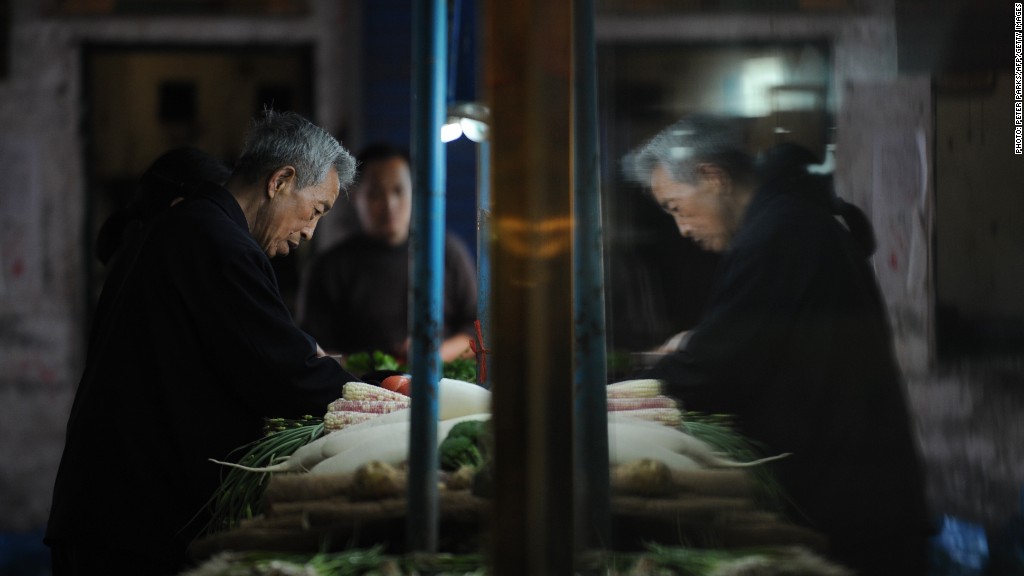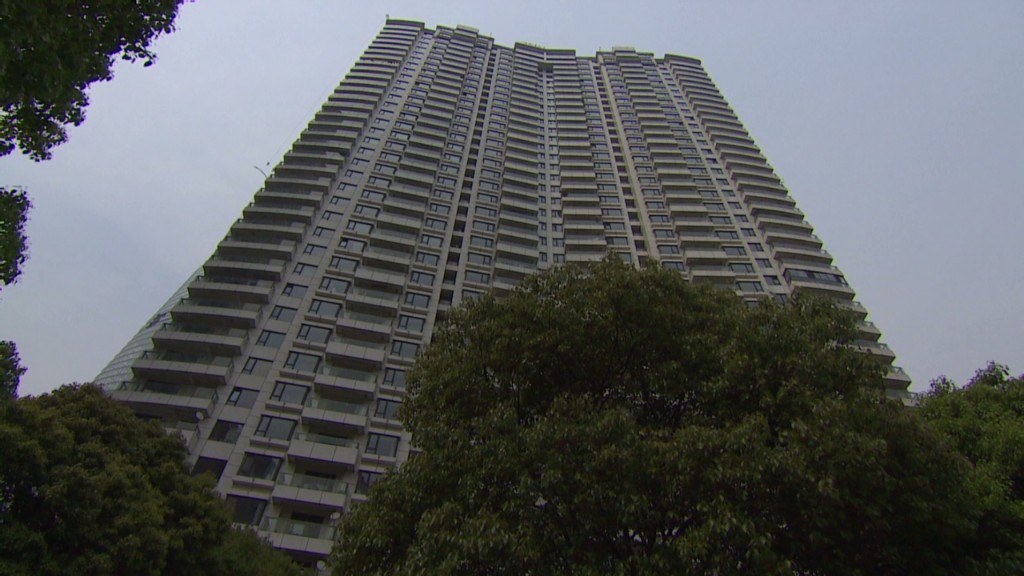
Large numbers of elderly Chinese are living below the poverty line and suffering from physical problems or depression, according to a study published Friday by western and Chinese academics.
The study, with a sample size of almost 18,000, offers a rare snapshot of China's rapidly aging population.
China currently has more than 185 million citizens over the age of 60. The elderly now account for around 12% of China's population, a figure that is predicted to swell to 34% by 2050.
And significant challenges are ahead.
At present, 32% of elderly Chinese reported having poor health, 38% said they were disabled, 23% are below the poverty line and 40% show symptoms of depression.
China's position as the world's most populous country means the percentages translate into huge raw numbers. According to the study, 44 million elderly citizens need assistance with basic daily activities, 100 million suffer from hypertension and 62 million report bodily pain.
In most cases, elderly men fare better than women and rich individuals better than the poor. The data also suggest better outcomes for those living in large cities, which the authors liken to European cities. Rural China, meanwhile, has more in common with other developing countries.
The results suggest that the leaders of the world's second largest economy are facing a set of tough choices as millions more Chinese are scheduled to leave the workforce in the near future, a trend that will strain social services as the still-developing country seeks to reform its economy.
Related story: China moves to curb rising income inequality
The country's ruling Communist Party has in recent years expanded pension programs for the elderly. It has also worked to strengthen China's social safety net, a policy direction that draws praise from the study's authors. The study, with input from more than a dozen researchers, was partially funded by a China state agency.

The survey found that more than 90% of the elderly in China have health insurance of some type, with the state covering much of the cost.
But the study's authors argue that more can be done to protect the elderly.
"Some elderly who require assistance for basic daily activities are not receiving the help they need, especially those living alone," the authors write. "Greater policy attention should be paid to identifying and assisting the elderly who are materially vulnerable."
Related story: Don't hold your breath for economic reform
Policymakers are in a difficult position. The country's economy is still growing rapidly, and China is being forced to confront a large elderly population at a relatively early stage in its development. Already, economic development has lifted hundreds of millions out of poverty.
Population demographics are already undergoing a sea change, with hundreds of millions moving from rural areas to the cities. Incomes are rapidly rising, but still low when compared to more advanced economies.
Even with these changes underway, China is attempting to move from an economy that is reliant on investment to one powered by consumption.
The study's authors argue that an improvement in care for the elderly might boost the chances of broad future economic growth.
"An aging but healthy population can reduce care needs and maintain high levels of productivity," they write. "If policy can support efforts by the elderly to migrate to where children live, then children can remain economically active while caring for their parents."


